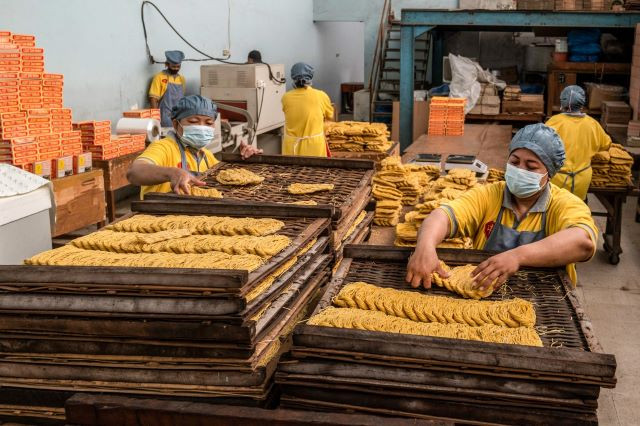Popular Reads
Top Results
Can't find what you're looking for?
View all search resultsPopular Reads
Top Results
Can't find what you're looking for?
View all search resultsBuildings to be demolished to save environment
West Java provincial administration is set to tear down buildings illegally built in water catchment areas in the northern Bandung mountainous region to save the city from annual flooding
Change text size
Gift Premium Articles
to Anyone

W
est Java provincial administration is set to tear down buildings illegally built in water catchment areas in the northern Bandung mountainous region to save the city from annual flooding.
'We will demolish all illegal buildings on state land,' West Java Housing and Spatial Planning Agency head Bambang Ryanto said in Bandung on Tuesday.
Previously, West Java Deputy Governor Deddy Mizwar called on his staffers to tear down buildings, whose developments were not in line with Regional Regulation (Perda) No. 1/2008 on spatial planning in North Bandung.
Based on the Perda, all parties who intend to build in the area must obtain a recommendation from the governor, while in fact, many buildings were built without the aforementioned recommendation.
Offenders could face three months in jail and a maximum fine of Rp 50 million (US$4,100).
Deddy said that the administration would send notification letters to the owners of the illegal buildings.
There are at least 13 properties built on the West Java Bina Marga (Highway) Agency's land, Bambang said, adding that his agency would team up with the Public Order Agency to list all illegal buildings in the area.
Land clearing in the North Bandung region has been blamed for the worsening annual floods because the area can no longer serve as a water catchment for the city.
Environmentalists have said that numerous luxurious housing estates and other properties, such as restaurants, cafes, hotels and shopping centers, have contributed to floods in Bandung as well.
North Bandung historically supplied 60 percent of the 108 million cubic meters of groundwater the city uses annually. Northern Bandung, which is 750 meters above sea level, covers three districts in Bandung regency, 10 districts in Bandung city, two districts in Cimahi city and six districts in West Bandung regency.
Northern Dago, for instance, has become a culinary hub, leading to the mushrooming of many new shops and hotels in both Setia Budi and Lembang.
The excessive development has also hampered researchers at the Bandung Institute of Technology's Bosscha Observatory.
Both provincial and city administrations have issued numerous bylaws to protect more than 38,500 hectares of conservation land in North Bandung, but it turns out that these efforts have not been sufficient in curbing flooding.









